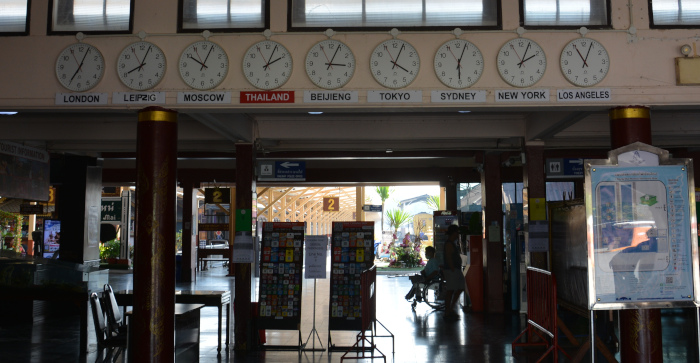
For long-distance travellers, at least when travelling to the east or west of the globe, the change of the „inner clock“ becomes a topic – described by the term „jetlag“. Anyone moving in these directions is exposed to the shifting of day and night times as the distance increases. This upsets our biorhythm. Depending on the target region and season, climatic extremes are added to this.
[Contains *advertising]
Table of content
- Without jetlag – Natural bio-rhythm in the daily schedule
- Jetlag only for east or west long distance travel
- „Daylight saving time is prescribtion community jetlag
- Sunlight controls activity rhythm
- Conscious planning on the adaptation phase
- Warning about microsleep
- Coping with the heat stress
Without jetlag – Natural bio- rhythm in the daily schedule
Our body develops its own biological rhythm depending on the natural phases of the day with light and dark times, which controls our „liveliness“, our activity capacity, the need for sleep and also the occurrence of hunger – feelings. Even if we as „modern humans“ are clocked by the time, this daily routine is based on the natural course of events. In particular, the influence of daylight plays an important role, which „wanders around the earth“ due to the rotation of the earth around the sun in east-west direction.
If we now leave our home region in east- or west-direction, this shift of the bright phase of the day becomes increasingly noticeable as a synchronous disturbance in our biological daily rhythm. If the change of place happens only slowly (hiking or cycling to Russia or sailing across the Atlantic), our body has time to slowly adapt the biorhythm to the changes of the day. Corresponding physical symptoms will hardly occur. But due to the technical possibilities of railways and airplanes to move through the time zones at high speed, there is no time for a gradual adjustment of the inner clock. This we feel as so-called jetlag.
Jetlag only for east or west long distance travel
On the Canary Islands, Cape Verde Islands, in Morocco or in Namibia this is not tragic for Central or West – Europeans – they are relatively close to our longitudes with max. 1 hour shift on the Atlantic islands. If you are on holiday there anyway and don’t have to be on time for a conference, you can simply sleep a little longer, and this hour is already balanced.
The main thing that is noticeable when jumping between time zones is the change between sleeping and waking hours, which is no longer harmonious. No wonder, if in Thailand a new day already starts at midnight, in Germany it is just 6pm. o’clock (6 hours „time difference“).
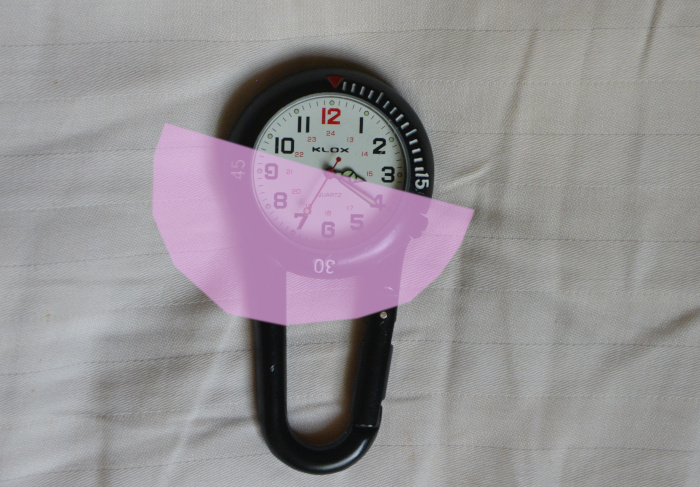
So if you have just arrived in Southeast Asia from Central Europe, you simply won’t find any sleep at this time. When it finally comes, the night at 2 a.m. Central European Time is already over – if you want to get up at 8 a.m. local time in order to make good use of the day before the great heat. This is exactly when your body is adjusted to the deep sleep phase and expects the greatest recovery effect! The result is a constant feeling of tiredness throughout the day, with all the collateral effects that this can have – while at the new bedtime the body suddenly signals that it is largely awake! Psychological side-effects can be bad mood, attention deficit disorders, irritability or even aggressiveness, the body can react with weakness, digestive problems or in the worst case with cardiovascular irregularities.
„Daylight savings time“ is prescription community jetlag
By the way, all these effects occur with many people already due to the absurd summer time shift, which represents a common jetlag prescribed in politburocratic fantasies of omnipotence. However, with the prospect of abolition in the near future, we should not make the mistake of introducing ‚eternal summer time‘! In Russia, this has been tried for over two years and has since been said „Never again!“
Because then it would not be bright at all in the morning, sunrise would be in winter only far after 9 o’clock, so that the people have more and more difficulties to „get going“. A reward with „in the evening a little longer bright“ would be so marginal that many of them would not notice anything at all. Instead we should simply orientate ourselves more strongly to nature again, and there the „normal time“ is simply the „natural time“ with midday 12:00 o’clock near the highest sun position.
Sunlight controls activity rhythm
Because our natural rhythm is based on the sun as a source of light and energy. Our biological activity arc begins at sunrise, reaches a first peak and a break at noon, when the sun reaches its highest level in the region. We use this time shortly after noon to regenerate our energy so that we can reach a second afternoon peak of creative energy. In the evening, as the sun’s rays diminish, our activity level decreases. It was only by providing artificial light that people were able to extend the performance phase into the night. However, it then becomes clear that we develop a strong need for sleep, which we should take into account well before midnight.
The migration of solar radiation over the earth causes people in India, for example, to get up about 4-5 hours before us and are already busy when the Europeans rub the last sleep out of their eyes.
Conscious planning of the adaptation phase
Nobody can simply shake off the inner rhythm. Normally an adjustment phase, which can easily last two weeks or more, is necessary to adjust to a new rhythm. For this reason alone, short trips of 14 days to the Far East are rather a questionable matter for me. You simply don’t get much out of running around tired and can only half perceive everything. It gets even worse when you meet foreign cultures with a jetlagged agro-mood and deepen the cultural gap instead of approaching other people with empathy.
This is why you need an adjustment period in which you should listen to your body calmly and carefully switch to a new daily rhythm.
Gently…
Think about a good schedule for the day. Consciously plan your time to get up and go to sleep. This includes getting up in the morning with a snooze phase, even if you are actually still dead tired. If the sun is shining in the destination country, it will be fine between 7 and 8 a.m. Start the day quietly, but as usual with washing, breakfast, etc. as at home. Afterwards do something – not too strenuous, but still active.
If you are travelling in a hot region like South East Asia anyway, it is better to do something early in the morning. And then you can take an extended siesta, as is usual in southern countries anyway, and sleep from one to three. But better not longer, and if so, then better from 12 to 3, otherwise you won’t be tired at all in the evening. That’s fatal, because when it’s 10 p.m. in Bangkok, for example, and it’s time for a night’s rest (okay, if your rhythm is different, it doesn’t matter), your body starts from 4 p.m. in Europe – and is thus still in the second peak phase of your daily creative power. Pick up a book, have a calming conversation or do some yoga… anything that gets you down before you go to sleep is good.
If everything does not help and you just can’t fall asleep – accept that. Then take the book again, read in the travel guide about your next stops or write some travel notes on your netbook or something…. So please show some understanding for the restlessness of your inner clock! And try to sleep again an hour later.
… or by force against yourself
Another method, probably inevitably practiced by many short travellers, is the „use of force“ against oneself. If you have a full program anyway and you pull it off mercilessly against yourself, you will be so exhausted in the evening that your body will only want to sleep – no matter what biological time your inner clock is showing. You can do this for a few days and your body is already in that rhythm. Especially young people have less of a problem with this. Disco weekends often look no different.
For older people it is a tour of violence that sags their personal strength. That means that the body gets the minimum amount of relaxation it needs for the moment. After the journey you should take a week of rest – vacation, also to commute back to your home time zone.
Set up comparison clock on tablet
On smartphones or tablets, you can set a second time for your travel region or your home region. This helps you to synchronize during the first few days, so you can see where your bio-rhythm is currently travelling. It’s also handy so you don’t have to call your friends in Europe when they wake up in the morning and can’t do anything with your call.
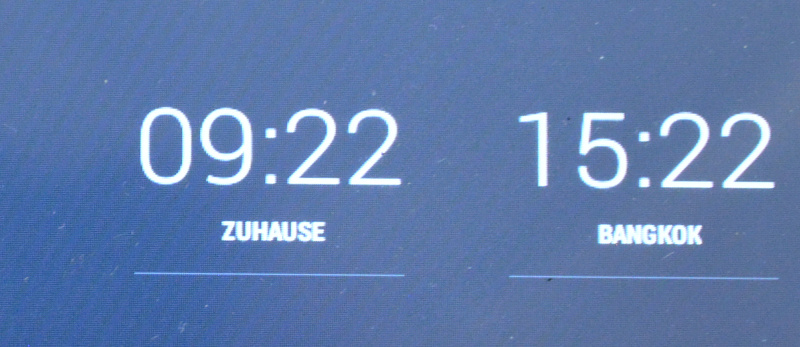
After about two weeks, the new rhythm should slowly settle in. For some people this is faster, for some it takes longer – so don’t despair! That’s why I argue that you should only take such long distance trips if you have several months at your disposal. Apart from the fact that you can adjust much better to the foreign cultures and the long flight is then somewhat better in relation to the journey as a whole.
Warning about microsleep
Another important aspect for your safety!
Because of the „adjusted inner clock“ it is quite possible that you will be surprised by microsleep – even during the day! So if you plan to rent a motorized vehicle*, don’t do so during the first week in jetlag or with a strict break schedule and good active self observation. Microsleep can lead to devastating accidents, especially in foreign traffic systems and under the influence of unfamiliar hot climates!
Coping with the heat stress
To face the heat always helps – drink a lot! Besides sun hat, sunglasses and light-coloured clothes of course. A full water bottle should always be your companion in tropical regions. Only through heavy sweating can your body keep the temperature at a healthy level. Besides, the body needs enough water to detoxify properly.
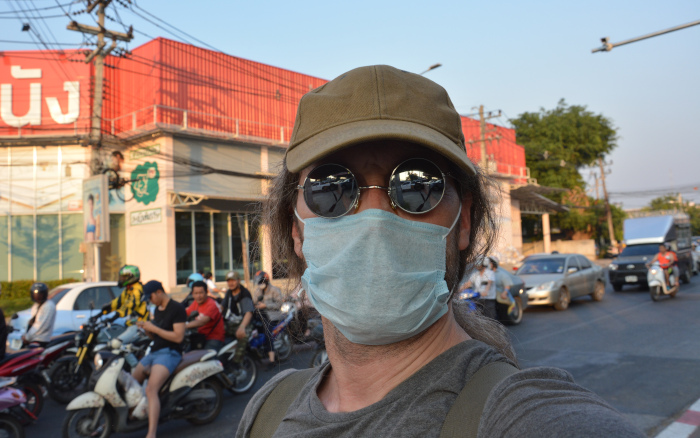
Through my travels in India I have learned to appreciate the normal drinking water again. In Europe, we often don’t even know anymore which treasure is splashing so easily out of our water pipes. We should appreciate this much more and above all, avoid any pollution at all costs!
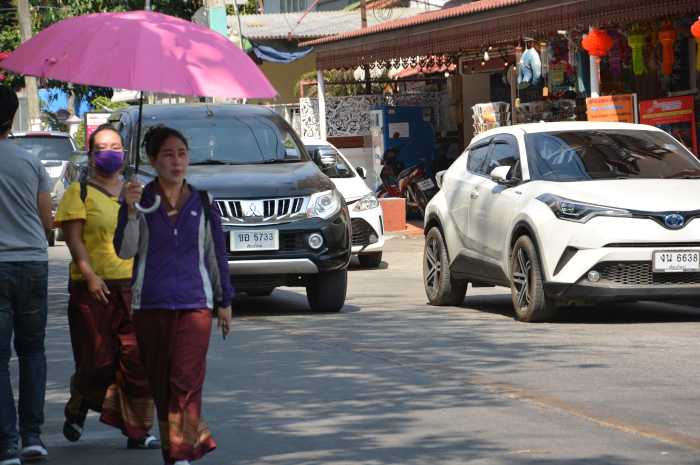
Very important in hot regions are regular breaks in the shade besides drinking. Above all, avoid the midday heat, then rather shift activities into the evening hours. It is quite common, especially in Southeast Asia, that the umbrella is also used as a parasol – so don’t be shy!
It only remains for me to wish you a good and eventful trip!
Of course I would be happy if you leave your experiences here as a comment! There are certainly many different ways to deal with the jetlag issue. Above all, I wonder how people who commute between time zones for professional reasons cope with this challenge. Because then, in addition to personal responsibility, there is also the responsibility for a professional assignment – how did you cope with this under jetlag influence?
Advertising
[*Advertising}


